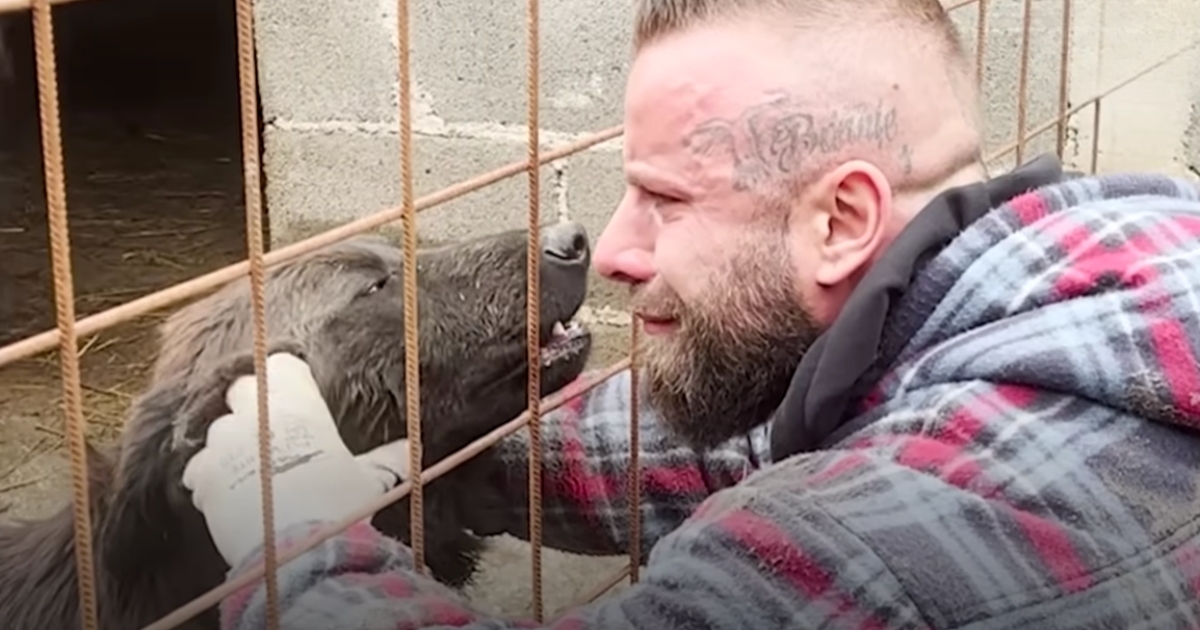
Dog ownership can be an immensely rewarding experience, but it also comes with its challenges. Sometimes, despite the best intentions, owners find themselves unable to meet the needs of their pets. This can result in dogs being surrendered to shelters. Various factors, including behavioral issues, unexpected expenses, and lifestyle changes, contribute to this unfortunate situation. Due to their specific requirements or common misunderstandings about their care, certain breeds are more frequently found in shelters. Here are 15 dog breeds most commonly surrendered to shelters, listed in descending order.
15. Dalmatian
With their striking spotted coats, Dalmatians have a unique appeal, often popularized by movies and media. However, their high energy levels and need for extensive exercise can overwhelm many owners. Dalmatians are also prone to genetic health issues, including deafness and urinary stones, which can add to the challenges of care. They can become destructive and difficult to manage without proper training and stimulation, leading many owners to surrender them to shelters.
14. Alaskan Malamute
Alaskan Malamutes are beautiful dogs with a strong work ethic and a need for vigorous exercise. Bred to haul heavy loads in harsh conditions, they thrive on physical activity and mental challenges. However, their high energy levels and strong prey drive can be difficult to manage in a typical household setting. Malamutes are also known for their independent nature and stubbornness, which can challenge training. Many Malamutes are surrendered to shelters because their owners cannot meet their exercise needs or handle their dominant personalities.
13. Akita
Akitas are large, powerful dogs known for their loyalty and protective instincts. While these traits make them excellent guardians, they can also lead to aggression and behavioral issues if not properly trained and socialized. Akitas requires an experienced owner who can handle their strong-willed nature and provide consistent, firm training. Their independent streak and potential for dominance make them a challenging breed for first-time dog owners. Many Akitas end up in shelters because their owners underestimate the commitment and expertise required to raise them.
12. Boxer
Boxers are energetic, playful dogs known for their affectionate nature and boundless enthusiasm. However, their high energy levels and need for constant activity can be overwhelming for some owners. Boxers require regular exercise and mental stimulation to keep them happy and healthy. Without these, they can become destructive and difficult to manage. Additionally, Boxers are prone to certain health issues, including heart problems and cancer, which can add to the challenges of caring for them. Many Boxers are surrendered to shelters because their owners cannot meet their exercise needs or handle their high energy levels.
11. Beagle
Beagles are small, friendly dogs known for their excellent noses and merry personalities. However, their keen sense of smell can lead them into trouble. Beagles are notorious for following their noses, often leading them to wander off if not kept on a leash or in a secure yard. They are also highly energetic and require plenty of exercise to stay happy and healthy. Additionally, Beagles are prone to separation anxiety and can become vocal and destructive when left alone for extended periods. Many Beagles are surrendered to shelters because their owners cannot meet their exercise needs or handle their wandering tendencies.
10. German Shepherd
German Shepherds are intelligent, versatile dogs that excel in various roles, from police work to search and rescue. However, their high intelligence and energy levels require significant mental and physical stimulation. Without proper training and exercise, German Shepherds can develop behavioral problems, including aggression and anxiety. Their protective nature can also lead to issues with strangers and other animals if not properly managed. Many German Shepherds end up in shelters because their owners are unprepared for the commitment and training required to keep them happy and well-behaved.
9. Siberian Husky
Siberian Huskies are known for their striking appearance and friendly nature. However, their high energy levels and strong prey drive can make them challenging pets. Huskies require a lot of exercise and mental stimulation to prevent boredom and destructive behavior. They are also known for their escape artist tendencies, often finding ways to climb or dig out of enclosures. Training a Husky requires patience and consistency, and their independent streak can make them difficult to manage. Many Huskies end up in shelters because their owners underestimate their exercise needs and escape tendencies.
8. American Pit Bull Terrier
American Pit Bull Terriers are often misunderstood and unfairly stigmatized due to their association with dog fighting and aggressive behavior. While they can be loving and loyal pets, they require proper training and socialization to manage their strong-willed nature and high energy levels. Pit Bulls are also prone to behavioral issues if not properly trained, leading to aggression towards other dogs and strangers. Many Pit Bulls end up in shelters because their owners are unprepared for the level of commitment and expertise required to raise them properly.
7. Jack Russell Terrier
Jack Russell Terriers are small, energetic dogs with a big personality. They are known for their intelligence and spirited nature, which can make them both entertaining and challenging. Jack Russells require a lot of exercise and mental stimulation to keep them from becoming bored and destructive. They are also known for their strong prey drive and tendency to dig, which can be problematic in a typical household setting. Training a Jack Russell requires patience and consistency; their high energy levels can be too much for some owners. Many Jack Russells end up in shelters because their owners cannot meet their exercise needs or handle their high energy levels.
6. Chihuahua
Chihuahuas are small dogs with big personalities. While their size makes them appealing for apartment living, their temperament can be challenging. Chihuahuas are known for being feisty and sometimes aggressive, especially if not properly socialized. They are also prone to separation anxiety and can become overly attached to their owners, leading to behavioral issues when left alone. Additionally, Chihuahuas require consistent training and boundaries to manage their strong-willed nature. Many Chihuahuas end up in shelters because their owners cannot handle their feisty personalities or meet their training needs.
5. Great Dane
Great Danes are known for their imposing size and gentle nature, often called “gentle giants.” Despite their calm demeanor, their sheer size can overwhelm many owners. Great Danes require significant space and can be prone to health issues such as hip dysplasia and bloat. Their short lifespan and potential for large vet bills can be daunting. Additionally, their size means they need a lot of food, which can be a significant expense. Many Great Danes end up in shelters because their owners find themselves unprepared for living with such a large dog.
4. Shih Tzu
Shih Tzus are small, affectionate dogs known for their sweet and gentle nature. However, their grooming needs are immense. Shih Tzus have long, flowing coats that require daily brushing and regular professional grooming to prevent matting and keep them looking their best. Additionally, Shih Tzus are prone to certain health issues, including respiratory problems and dental issues, which can add to the challenges of caring for them. Many Shih Tzus are surrendered to shelters because their owners underestimate the commitment and expense required to maintain their grooming and health needs.
3. Belgian Malinois
Belgian Malinoiss are highly intelligent and energetic dogs often used in police and military work. Their intense drive and work ethic make them excellent at what they do, but these traits can be overwhelming for the average pet owner. Malinois need a lot of physical and mental exercise to keep them from becoming bored and destructive. They are also highly protective and require consistent training and socialization. Without proper guidance, their energy and drive can lead to behavioral issues. Belgian Malinois are best suited for experienced handlers who can meet their high exercise and training needs.
2. Labrador Retriever
Labrador Retrievers are one of the most popular breeds in the world, and for good reason. These dogs are incredibly friendly, loyal, and eager to please. However, their high energy levels and need for constant activity can be overwhelming for some owners. Labradors require regular exercise and mental stimulation to keep them happy and healthy. Without these, they can become destructive and difficult to manage. Additionally, Labradors are prone to certain health issues, including hip dysplasia and obesity, which can add to the challenges of caring for them. Many Labradors are surrendered to shelters because their owners cannot meet their exercise needs or handle their high energy levels.
1. Border Collie
Border Collies are widely regarded as one of the most intelligent dog breeds. They are known for their problem-solving skills and ability to learn complex tasks quickly. Border Collies excel in obedience training, agility, and various canine sports. They are also highly energetic and require plenty of exercise and mental stimulation. Their intelligence and work ethic make them excellent working dogs, but they can be a handful for inexperienced owners. Border Collies are best suited for active owners who can provide the time and attention to keep them engaged and happy. Their high energy levels and need for constant activity often lead to them being surrendered to shelters by unprepared owners.
Choosing the right dog breed involves more than just falling in love with their appearance or reputation. Each breed has its own challenges and needs that must be carefully considered. By understanding the demands and characteristics of these 15 breeds, prospective dog owners can make more informed decisions and potentially reduce the number of dogs abandoned each year. Proper research, training, and commitment are essential to providing a loving and stable home for any dog, ensuring they remain a cherished part of the family rather than ending up in a shelter.






